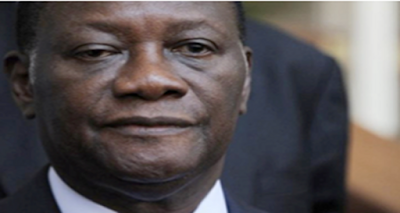 |
| Ivory Coast President Alassane Ouattara |
With Ouattara’s supporters dominating parliament after the opposition boycotted 2011 elections, 239 of 249 lawmakers voted in favour, easily surpassing the two thirds majority required.
Just eight voted against and two abstained while one failed to show in protest.
Former prime minister Guillaume Soro, now speaker of the assembly, said after the vote that lawmakers had “written a page of our country’s history.”
Soro added that the text, Ouattara’s brainchild, sought to put an end to years of instability.
Soro said that ultimately “only the sovereign people can decide on the fate of this constitution,” and they would have the chance to do so in a referendum due on October 30.
Ouattara, 73, promised to deliver a new constitution after he was re-elected to a second five-year term a year ago. The new draft notably scraps the stipulation that both parents of presidential candidates must be have been born in Ivory Coast.
In the past, this clause prevented Ouattara himself for running for the country’s top office.
It was also resented by many in the north of the country, where many people have family connections to neighbouring countries, as a symbol of exclusion. The question of national identity — of who is a real Ivorian — has long been a source of violent friction in Ivory Coast.
Other proposals in the new draft include setting up an elected vice presidency and a senate, one third of whose members would be nominated by the president.
Last week, two dozen opposition parties denounced the proposed new draft as “undemocratic” and said it would spark the kind of unrest seen after former president Laurent Gbagbo, now on trial for war crimes and crimes against humanity at the International Criminal Court, refused to step down in 2010.
Gbagbo’s own Ivorian Popular Front was one party opposing the draft constitution.
AFP
